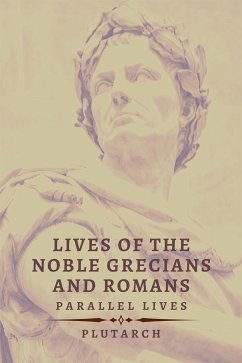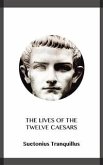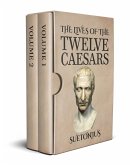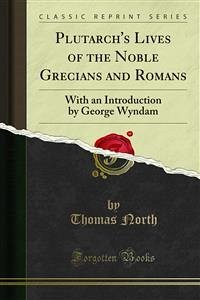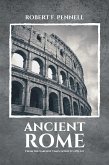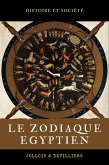“To be ignorant of the lives of the most celebrated men of antiquity is to continue in a state of childhood all our days.” —PLUTARCH
Lives of the Noble Grecians and Romans , also called Parallel Lives, is a collection of biographies of famous Greek and Roman soldiers, legislators, orators, and statesmen written by the Greek writer Plutarch. Plutarch structured his Lives by pairing lives of famous Greeks with those of famous Romans (Thesus/Romulus, Pericles/Fabius Maximus, Nicias/Crassus, Alexander/Caesar, Demosthenes/Cicero…). His biographies are enriched with frequent ethical and philosophical reflections and anecdotes.
The interlocking civilizations of ancient Greece and ancient Rome has been immensely influential on the language, politics, law, educational systems, philosophy, science, warfare, poetry, historiography, ethics, rhetoric, art and architecture of the modern world. This work explores and explains the invaluable contributions made by these men and their legacies.
With Active Table of Contents.
Lives of the Noble Grecians and Romans , also called Parallel Lives, is a collection of biographies of famous Greek and Roman soldiers, legislators, orators, and statesmen written by the Greek writer Plutarch. Plutarch structured his Lives by pairing lives of famous Greeks with those of famous Romans (Thesus/Romulus, Pericles/Fabius Maximus, Nicias/Crassus, Alexander/Caesar, Demosthenes/Cicero…). His biographies are enriched with frequent ethical and philosophical reflections and anecdotes.
The interlocking civilizations of ancient Greece and ancient Rome has been immensely influential on the language, politics, law, educational systems, philosophy, science, warfare, poetry, historiography, ethics, rhetoric, art and architecture of the modern world. This work explores and explains the invaluable contributions made by these men and their legacies.
With Active Table of Contents.

